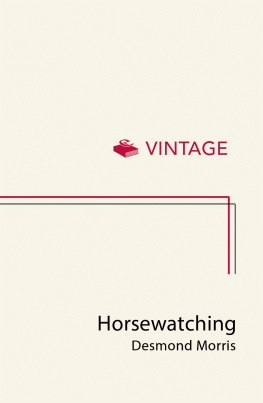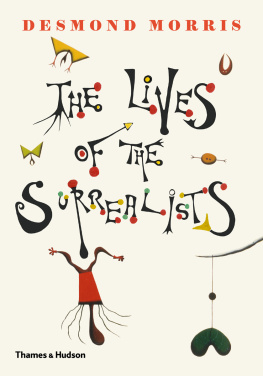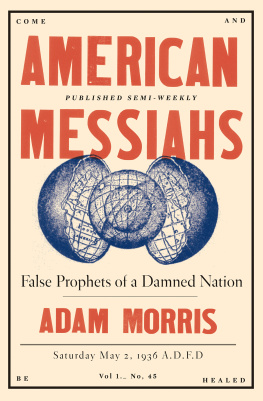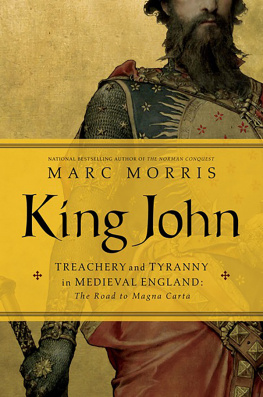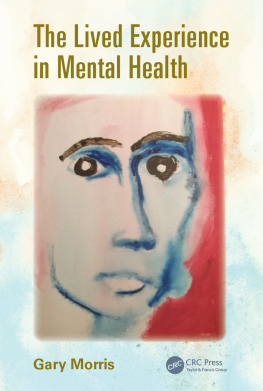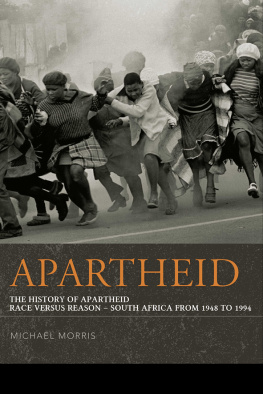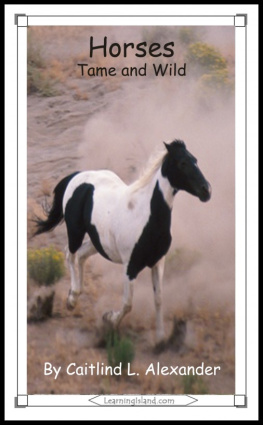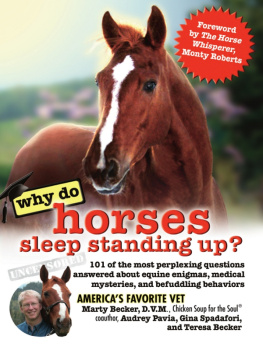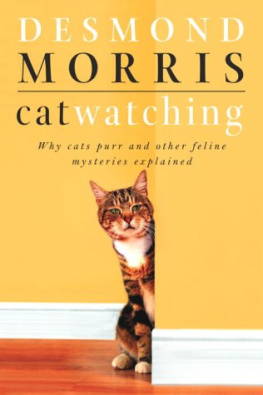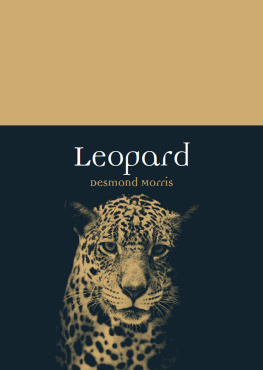Contents
About the Author
D ESMOND M ORRIS studied animal behaviour under the famous Dutch ethologist Niko Tinbergen at Oxford University. He then became Curator of Mammals at London Zoo, where he established his own behaviour research group. For thirty years he has presented animal and human behaviour in many popular television series, including The Animals Roadshow, which he has made the subject of a recent book. His book The Naked Ape added a new term to the English language and was a worldwide success. Other bestsellers include Catwatching, Dogwatching and Catlore.
About the Book
How intelligent are horses? Why do they toss their heads and what makes them paw the ground?
After spending more than twenty years studying the body language of the human species, Desmond Morris turned his attention to the behaviour of some of our closest animal companions. First he looked at dogs, then cats, and now horses. As Curator of Mammals at the London Zoo he was able to study closely the zebras and wild horses in his charge. More recently, as a racehorse owner, he has scrutinised the glamorous world of thoroughbred racing.
Throughout his long involvement with horses, Desmond Morris has never stopped asking questions. In Horsewatching he sets out to answer them. As a zoologist and a lifelong student of animal behaviour, he approaches the horse world in an unusual way, dealing with topics often ignored in equine literature. In addition to examining details of behaviour, Dr Morris considers such questions as why horseshoes bring good luck, why we dont eat horses, why jockeys are allowed to whip their mounts and why we call a bad dream a nightmare. And for punters everywhere, he applies his zoological mind to the all-important question of why some horses run faster than others
Also by Desmond Morris
The Biology of Art
Men and Snakes (co-author)
Men and Apes (co-author)
Men and Pandas (co-author)
The Mammals: A Guide to the Living Species
Primate Ethology (editor)
The Naked Ape
The Human Zoo
Patterns of Reproductive Behaviour
Intimate Behaviour
Manwatching
Gestures (co-author)
Animal Days
The Soccer Tribe
Inrock (fiction)
The Book of Ages
The Art of Ancient Cyprus
Bodywatching
The Illustrated Naked Ape
Dogwatching
Catwatching
The Secret Surrealist
Catlore
The Animals Roadshow
The Human Nestbuilders
HORSEWATCHING
Desmond Morris

This ebook is copyright material and must not be copied, reproduced, transferred, distributed, leased, licensed or publicly performed or used in any way except as specifically permitted in writing by the publishers, as allowed under the terms and conditions under which it was purchased or as strictly permitted by applicable copyright law. Any unauthorized distribution or use of this text may be a direct infringement of the authors and publishers rights and those responsible may be liable in law accordingly.
Version 1.0
Epub ISBN 9781473522770
www.randomhouse.co.uk
First published 1988
Reprinted 1988
Copyright 1988 by Desmond Morris
Jonathan Cape Ltd, 32 Bedford Square, London WC1B 3EL
A CIP catalogue record for this book is available from the British Library
ISBN 9780224025959
Introduction
If the dog is mans best friend, then the horse could be well described as mans best slave. For thousands of years horses have been harnessed, ridden, spurred and whipped. They have been ruthlessly driven into the centre of bloody battlefields where they have been hacked to pieces. For centuries they have toiled to drag heavy loads in the service of human ambition and then been rewarded at the end of their days with a trip to the knackers yard. Their endless exploitation has been due to their amazing willingness to cooperate with their human companions and to struggle as best they can to please us. This temperament, which has so often been their undoing, stems from their naturally sociable lifestyle in the wild. Horses are by nature herd animals that live in small bands where cooperation is as powerful a theme as competition and where affection for one another is so strong that it is easily transformed into a horse-human bond. Unfortunately for the horse, this bond always ends with the human partner coming out on top, both literally and metaphorically. Being so good-natured has cost the horse dearly.
The other side of the coin is mans great love and respect for the horse, now stronger than ever. For every example of brutality there are many cases of human devotion to horses, shown in long hours of selfless care and protection. For every callous horse-whipper today there is an army of passionate horse-lovers, ready to rise at dawn and endure repeated hardships to ensure that their adored equines enjoy the best lifestyle possible. No animal is more admired or more highly valued.
What is it about the horse that awakens such intense feelings? Is it the animals looks or its behaviour, its graceful athleticism or its personality? The answer is to be found in a remark made nearly four hundred years ago by the naturalist Edward Topsel when he wrote of the horse that it possesses a singular body and a noble spirit, the principal whereof is a loving and dutiful inclination to the service of Man, wherein he never faileth in Peace nor War and therefore we must needs account it the most noble and necessary creature of all four-footed Beasts. The clue to its special appeal is summed up by the words noble and necessary. It is the combination of its proud bearing with its slavish service to man that makes it so irresistible. If it were noble but untameable, like a giraffe, we would wonder at its beauty but would not become passionate about it. If it were useful but ungainly, like a pig or a cow, we would be grateful for its services but would not, perhaps, compose poems to it or wax lyrical about its great spirit. No, the secret of equine appeal is that it slaves for us while still looking noble. It is our humble servant even though it has the demeanour of an animal aristocrat. The mixture is magical. If such a dignified beast is subordinate to our will, then we must indeed be masters of the world.
So it was, from the very start of equine domestication, that man came under the spell of the horse. And right from the beginning there was one feature in particular that made a special impact on human affairs: its swift legs. Put to work for mankind, they gave a sudden boost to human expansion. For the first time our ancestors could move fast from place to place. Previously cattle had been the beasts of burden, the draught animals and the pullers of the plough. Now they could be restricted to the slower, clumsier tasks and the long-distance duties could be carried out more quickly by the horse. The mobility of man was magnified dramatically. Civilization could spread, trade routes could be opened up that were previously impossible. Cultural exchanges could be developed and the hybridization of ideas rapidly led to new creative vigour. For thousands of years, right up to the arrival of the internal combustion engine, the horse was the vehicle of the human conquest of the earth.
Its swift legs are significant, too, in having created its noble image. Because wild horses are fast-moving plains-living grazers, specialized for open country, they have had to evolve, over millions of years, the elegant frame of the muscle-rippling athlete. Rapid movement demands a certain style of body-structure, a style which we, as athletes ourselves, appreciate. As a species we are fast runners, too not diggers or climbers or clingers, but sprinters and this gives us a common bond with the horse and a deeply rooted admiration for its amazing pace and grace. Psychologically it becomes an extension of our own running bodies. Sitting on its back we fuse with it in our minds to become one single, galloping, invincible being the great centaur of ancient mythology.
Next page
